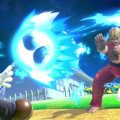Fighting Games Friday: The End of Complete Collections

Fighting games are at the most popular points when still being supported by their developers and publishers, and when they’re featured in tournaments to a lesser extent. They’ll all lose that popularity over time, but the best of them should always be playable in easy-to-access formats. I like that I can play, say, Super Street Fighter II Turbo easily enough through well-emulated official rereleases over the years from digital and physical collections or through an actual PC emulator. The game goes for titles like Tekken Tag Tournament, Soulcalibur II, and Mortal Kombat II.
All the games mentioned in the lede notably originate from a time when fighting games arrived feature complete on release through physical media. Those days are over, even for smaller releases. Publishers these days release fighting games and support them through downloadable content for years. This has been a fine business approach for anyone who saw an updated version of a video game like Super Street Fighter IV and Blazblue: Continuum Shift and threw a shit fit about them on the internet. But anyone who likes the security of a fully-featured release, like me, is having a bad time with modern releases. The fear that they’ll never get fully-featured releases on physical media, still the most secure format for a video game, is justified, as two rereleases announced for a couple of territories over the last couple weeks particularly illustrate.
One is the Tekken 7: Legendary Edition, a new physical rerelease that sounds like the kind that will come with all the downloadable content released thus far. It’s not. The package, curiously only announced for European territories, will only include eight of the 15 DLC characters released. They aren’t even the initial eight characters, with both Final Fantasy XV’s Noctis and The Walking Dead’s Negan being skipped over, a perhaps ominous foreboding for how long they’ll be available separately on the digital market in the future. This release is an ostensibly good way to get into Tekken 7 at this point, but it might be easier to buy a cheap copy of the base Tekken 7 game and purchase the DLC seasons on sale.

This also partially applies to the Street Fighter V All Character Pack, currently only announced for Japan. Unlike the Tekken 7 collection (if you want to call it that), this one will include characters from all five seasons released since the game first launched in February 2016 — nearly six years ago, if you can believe it. There’s an unsurprising catch: Like the Championship Edition before it, this package comes with the base game on disc but the DLC through an included code. If Capcom isn’t releasing a package with all the content on disc after the final character, Luke, arrives in December, it’s unlikely we’ll get an actual one in the near future.
You can understand and perhaps share my concern here. Complete packages are good for revisiting older fighting games, and it will be much easier to do that with modern fighters in the future through complete packages on disc. But that’s not happening.
This is an extension of the overall video game preservation problem, a justifiable fear given how bad publishers are at preserving their own games despite having the means to do so. Having complete collections is nice to have for security’s sake, especially for games that receive new content over several years. In Street Fighter V’s case, this is a humorous and ironic instance in where the PlayStation 5 being backwards compatible with PS4 titles could be a bad thing. PS3 titles not being compatible with the PS4 gave Capcom the incentive to port a feature and patch-complete version of Ultra Street Fighter IV to the platform, initially released in a disheveled state before itself being patched up well. It’s a shame they didn’t care enough to give it a physical release. With PS5 being backwards compatible with PS4, there’s less incentive for Capcom to do this.
Physical versions for games based on licensed properties or featuring licensed characters would be preferable. Tekken 7 is the example I focused on above, but Soulcalibur VI, which features Geralt, 2B, and Haohmaru from The Witcher series, NieR: Automata, and Samurai Shodown, respectively, is another one, even though none of those characters are notably on par with a Walking Dead face. For an example of how bad this could get, see the campaign being waged for Marvel vs. Capcom 2 right now, the potential success for which is uncertain.

That said, it’s worth appreciating when this does happen. NetherRealm has been mostly good with preserving games with largely feature-complete disc releases like Mortal Kombat 11 Ultimate, for which the PS4 and Xbox versions have all the main content on the disc, though not all the patches. The PS5 version was notably left out for unknown reasons, but PS4 purchasers can still obtain the PS5 one through a cross-platform download. I’d love it if other publishers followed their lead, but I sure as hell don’t expect it.
This won’t be of concern to most of the gaming audience, and it feels like only ten people besides me care about stuff like this. But it would be important to preserve these for the future, because it’s difficult to determine when the fighting game audience will get nostalgic for an older game simultaneously and clamor for a rerelease, inaccessible thanks to being left behind on older platforms or neglected in the digital space. See what’s happened with games like the aforementioned Marvel vs. Capcom 2 or even Capcom vs. SNK 2. This is another situation where I hope publishers can take game preservation seriously, but I’m sure it will be up to fans.





